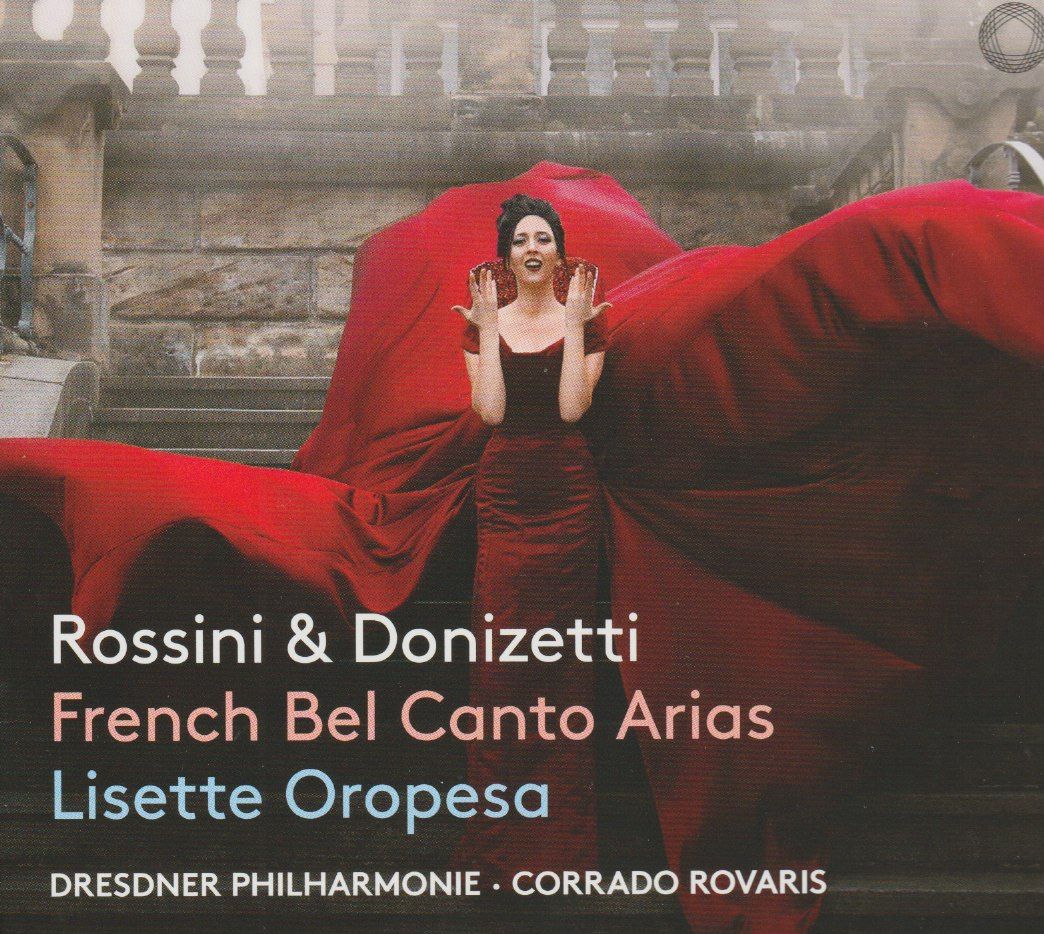Lisette Oropesa: French Bel Canto Arias by Rossini and Donizetti
A simply wonderful disc. The spectrum of emotions is vast, teh programming inspired

“
Soprano Lisette Oropesa is one of the most sought-after singer son the World stage today. Recently, she sang the title role in Handel's Alcina at Covent Garden (see my review here). And let's not forget we featured her Violetta (La traviata) here on Classical Explorer in this post.
For her second solo album, Oropesa has chosen Bel Canto arias in French - which includes Donizetti's French-language version of Lucia di Lammermoor (Lucie de Lammermoor). Both Rossini and Donizetti were active in Paris, one ofteh operatic capitals of the World to this day, and Oropesa offers a wonderful opportunity to explore some of this repertoire.
Inspired by performances of grand opéra in Paris some years ago, Oropesa realised this was an ideal project - her native Louisiana has a pronounced French bias and this was the first language she studied.
Rossini's Le siège de Corinthe (The Seige of Corinth, 1826, originally Maometti II) furnishes Pamyra's aria “Que cais-je devenir? ... Du séjour de la lumière” (What will become of me? ... From the dwelling place of light"). Listen to the huge difference between the declamatory opening section and the silky legato of the aria (tracks 1 and 2 on the disc):
Just listen to Oropesa's vocal dexterity in the second excerpt - just after the chorus sings for the first time, at the line “Mais après un long orage” (But after a long storm). She is perfect for this repertoire, and not just in the fast stuff. Listen to the compelling way with the recitative, “L'heure fatale approche” (The fatal hour approaches), and how she shades the line when she speaks of “peaceful and dark vaults” (Voûtes paisables et sonmbres). Here's to the aria that follows, “Juste ciel” (Righteous heavens):
Although still by Rossini, the aria from Guillaume Tell breathes a very different air. In the booklet notes, Oropesa hints that she is aimingfor a Mathilde as part of a full production - on the strength of this one certainly hopes so. The recitative opening (“Ils s'éloignent enfin” - They are going away at last) is dramatic, and brilliantly realised not only by Oropesa but also by the Dresden orchestra and Corrado Rovaris:
The aria that follows, “Sombre forêt,” is an absolute dream, the forest of the title a place of solace for Mathilde. Surely this is one of Rossini's finest arias - and listen to how Oropesa shapes the lines, and how the swell of strings supports her, or how woodwind solos complement her melodies. Oh, and there's the little vocal cadenza at the end, each note of the rapid ascent perfectly articulated:
Finally for the Rossini segment of the disc, Le Comte Ory, and Countess Adèle's “Celeste providence” (with a one-word insert, “Toujours”, from tenor Frank Blümel). Listen out for those delicious ‘Rossini crescendos’ in the orchestra, and at Rossini's skill in building the climax with the superb chorus the Sáchsische Staatsopernchor Dresden):
... and so ends the Rossini half of the programme. The baton gets handed over to Donizetti ...

Here we have Donizetti's Les Martyrs (a revision of Poliuto), and the very different musical language of the glorious aria, “Qu'ici ta main glacée bénisse ton enfant,” (here may you lay your icy hand), Pauline's aria from act 1:
.. and we hear Donizetti at his most expressive in the aria from Lucie de Lammermoor act 1, “Que n'avons nous des ailes?" (Why don't we have wings?). Oropesa varies her voice so well - she makes a real distinction between Rossinian and Donizetian expressive ways. And, just after three minues in, we get one of those irresistable Donizetti tunes in the orchestra, taken up by Oropesa irrepressibly:
La fille du régiment is one of Donizetti's most popular operas, and Natalie Dessay has made something of a speciality of the role of Marie. Ororpesa proves to be Dessay's equal, at least vocally, in a magnificent “Il faut partir”:
A touching “C'en est donc fait” follows. Quote right, though, that the disc should end on a high, with the “Salut à la France,” deliciously light and seductively phrased. And those trills ...
A simply wonderful disc. The spectrum of emotions is vast, teh programming inspired.
